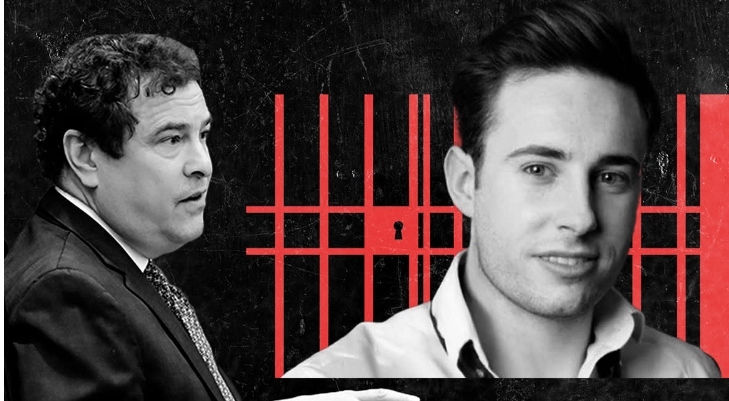Newark, NJ — Chaim “Eli” Puretz, a key player in a multi-million-dollar mortgage fraud scheme, was sentenced to 24 months in prison by U.S. District Court Judge Robert Kirsch on Thursday. Puretz was involved in a fraudulent scheme to inflate property prices, which led to a $45 million loan for a Michigan property, resulting in substantial losses.
Judge Kirsch, while acknowledging Puretz’s difficult upbringing, noted that the defendant was a “novice swimming in a shark’s pool.” He considered the impact of Puretz’s childhood, marked by neglect, abuse, and mental health challenges such as obsessive-compulsive disorder (OCD) and anxiety.
Puretz’s Sentence and Financial Restitution
The court imposed a shorter-than-expected sentence, avoiding the maximum five-year prison term. Puretz was also ordered to pay $20 million in restitution, although he is not fully responsible for the amount. His willingness to take responsibility for his actions and his lack of a prior criminal record played a role in the sentence reduction.
Role in the Fraud Scheme
In August 2023, Puretz pleaded guilty to conspiracy to commit wire fraud related to the purchase of Troy Technology Park in Michigan. He and his father, Aron Puretz, along with Boruch Drillman, inflated the property’s price to obtain a larger loan, with Riverside Abstract, a New Jersey-based title insurer, processing the fraudulent deal.
This case is part of a broader initiative by the Department of Justice (DOJ) to combat commercial mortgage fraud. Earlier this month, Judge Kirsch sentenced Aron Puretz, Eli’s father, to five years in prison, with $22 million in restitution.
Personal Struggles and Public Remorse
In a heartfelt speech at his sentencing, Eli Puretz admitted to committing an “egregious criminal act” and expressed profound regret for bringing shame to his family. He mentioned his two children, and his wife, who is expecting a baby in May, noting the emotional toll of his actions.
Despite his criminal involvement, Eli expressed that the experience had transformed him. In a previous interview on Halacha Headlines, a podcast hosted by David Lichtenstein, Puretz shared that he felt “almost relieved” about the charges, believing that the consequences had ultimately saved him from making worse decisions.
The Family Dynamics and Community Influence
The sentencing also shed light on the strained relationship between Eli and his father, Aron. Judge Kirsch referenced letters from family members supporting Eli, which described Aron as “cold” and “rigid”. The judge noted that while the Orthodox Jewish community in Lakewood, New Jersey, often supports its members during hardship, it failed to intervene when Eli was struggling. This, he believed, contributed to Eli’s mental health challenges and poor decision-making.
Looking Forward
In a final twist, Eli Puretz has confirmed that he has cut ties with his father following the legal proceedings. Many in the courtroom expressed a mix of relief and sorrow, with family members seen praying and comforting Eli’s wife, who was visibly distressed during the hearing.
As the legal process continues for the Puretz family, the case stands as a stark reminder of the destructive power of financial fraud and the personal toll it can take on individuals and their families. Eli Puretz’s journey is a cautionary tale of how greed can lead to devastating consequences and how early intervention and support systems could have altered his path.
